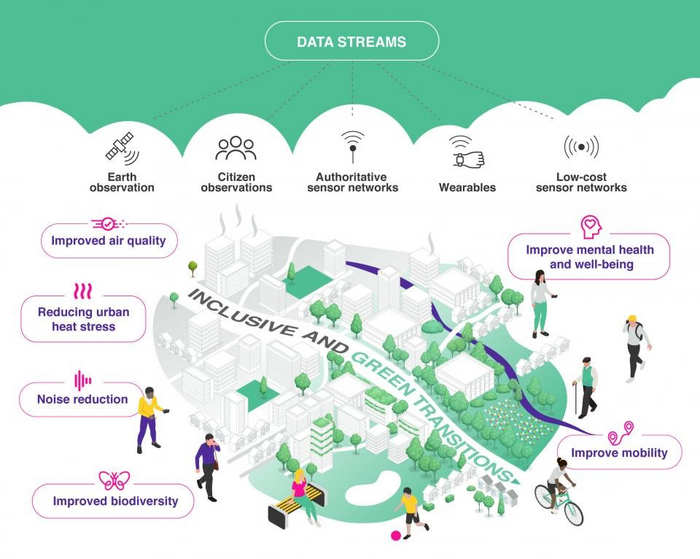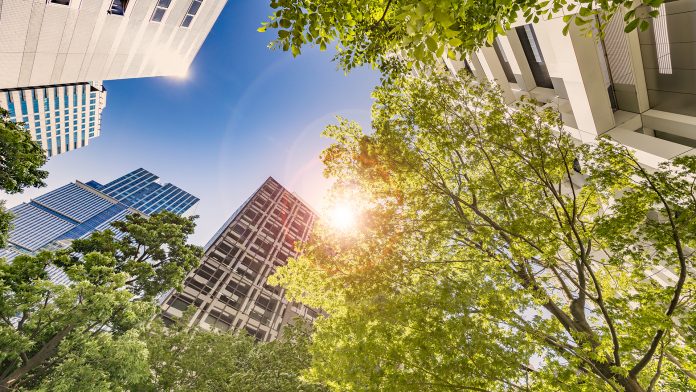An innovative new project called Urban ReLeaf will develop nature-based solutions to boost urban green spaces and tackle climate change.
The project will pioneer a citizen-powered data ecosystem to drive climate change adaption, develop green infrastructure, and plan the most optimal way to design urban green spaces. The endeavour could significantly mitigate the effects of global warming, and rising air pollution, and provide health benefits to citizens.
The project is spearheaded by Inian Moorthy and Gerid Hager from the IIASA Novel Data Ecosystems for Sustainability (NODES). The research group is comprised of academic and private sector partners, in addition to six cities, including Athens, Cascais, Dundee, Mannheim, Riga, and Utrecht.
Inian Moorthy said: “Our hope is to support just transitions for communities to address the changing climate of urban environments and green space planning in a more inclusive way.”
How green spaces will be crucial in combatting climate change
Research suggests that 83.7% of Europe’s population will live in cities by 2050. This is a stark increase from the 72% estimated in 2015. The reasons for this projected increase are quite simple; living in cities often provides a range of benefits compared to living in rural areas, such as lucrative job opportunities and infrastructure.
However, what is the cost of these benefits? Despite these opportunities, those who live in cities are at an increased risk of being exposed to harmful levels of air pollution and the heat island effect that is becoming progressively severe because of climate change. These not only pose threats to the environment but also to human health.
Boosting urban green spaces, tree planting, and other nature-based solutions is an effective method to mitigate these effects, helping to cool the climate, reduce air pollution, and improve mental and physical well-being.
However, access to green spaces in cities is currently insufficient. The Green Space Index from Fields in Trust identified that around 2.8 million people in the UK are not within a ten-minute walk of green spaces, with levelling-up target areas having 10% less green spaces than the average across Britain.
This is only projected to get worse. By 2040, the research suggests that the provision of green spaces per person will have reduced by 7.6%, with only one in four of Britain’s nations and regions exceeding the minimum standard of green space provision. By 2040, London will have fallen below half the minimum standard of provision.
What will the Urban ReLeaf project do?
There are various initiatives supporting a nature-based approach to climate change, such as the New EU Forest Strategy for 2030 and the European Green Deal. Despite this, making informed decisions remains a challenge for authorities because of a lack of reliable data.

Urban ReLeaf will overcome this through Earth Observation, low-cost sensor networks, and wearable technologies. The project started on 25 January with a three-day workshop. It will see partners from nine European countries collaborate to advance citizen-powered science for inclusive urban green planning and policy.
Gerid Hager concluded: “We are excited to work with urban authorities, opening a new chapter for citizen participation and the uptake of citizens’ observations. With a mission-led approach, Urban ReLeaf builds new partnerships and processes where citizens collaborate alongside authorities to share knowledge and drive targeted and evidence-based decision making.”









